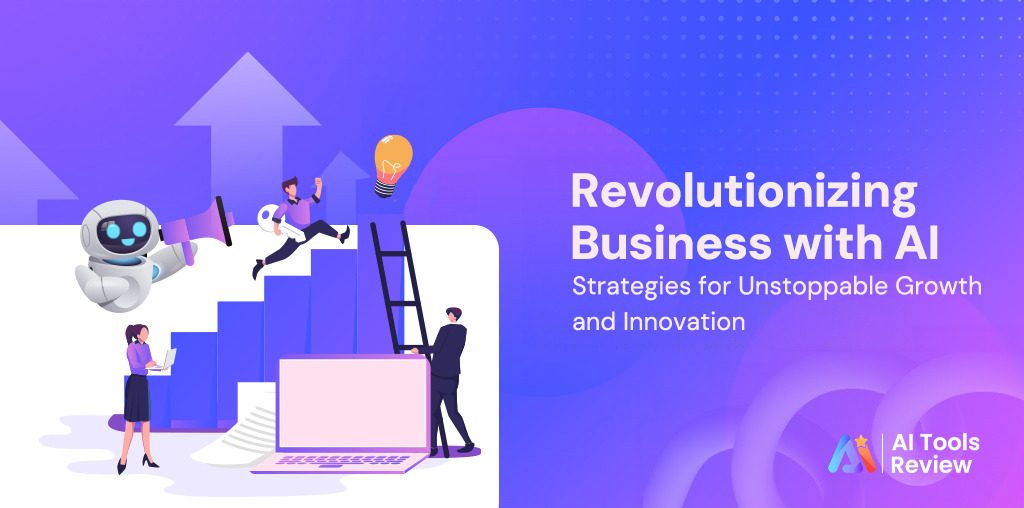In a rapidly evolving digital landscape, integrating artificial intelligence (AI) into business strategies is no longer optional—it’s a critical pathway to success. The swift pace of technological innovation underscores the importance of leveraging AI to enhance efficiency, spark innovation, and unlock new growth opportunities. As industries undergo transformation, it is vital for business leaders to explore AI’s capabilities and embrace its strategic applications for long-term growth.
Enhancing Operations with AI
AI has moved beyond being a mere technological advancement; it’s now a cornerstone for operational optimization. Businesses are using AI in areas like supply chain management, inventory forecasting, and customer service to streamline processes, reduce costs, and improve efficiency. For instance, companies employing AI-driven demand planning have significantly minimized stock shortages, enhancing both sales and customer satisfaction. Moreover, AI tools for marketing and sales personalization have been shown to boost customer engagement and improve conversion rates.
AI in Mobile App Development
The role of AI in mobile app development has expanded, delivering intuitive features and improved functionality. AI-driven advancements such as real-time text predictions, voice recognition, and intelligent assistants are creating seamless user experiences. Leading tech companies like Google and Apple integrate AI frameworks to enhance app capabilities, making mobile interactions smarter and more responsive. These innovations continue to set new standards in mobile technology.
AI-Driven Transformation Across Industries
AI is not only refining processes but is also redefining industries. Businesses like Lemonade are leveraging AI for claim processing in the insurance sector, enabling rapid resolutions that challenge traditional approaches. Similarly, Spotify’s AI-based recommendation system offers users a personalized music experience, cementing its competitive edge. These examples highlight how AI-driven strategies are reshaping industries and introducing innovative business models.
Key AI Components for Executives
For executives aiming to maximize AI’s potential, understanding its core components is essential. Machine learning allows systems to learn and adapt through experience, while natural language processing (NLP) enables interaction with human language. Technologies like computer vision aid in recognizing visual data, robotics apply AI to physical tasks, and predictive analytics use data to forecast trends and outcomes. These foundational elements empower businesses to harness AI effectively for diverse applications.
AI and Customer Experience Enhancement
AI revolutionizes how businesses connect with their customers by offering tailored, data-driven experiences. AI-powered tools, such as chatbots for instant support and recommendation systems, allow companies to engage with customers more effectively. Amazon and Netflix are prime examples of businesses excelling in personalization, driving customer loyalty and retention through AI solutions. By adopting similar strategies, companies can strengthen customer relationships and gain a competitive advantage.
Ethics, Privacy, and Talent in AI Adoption
AI’s integration into business comes with challenges that require careful navigation. Ethical considerations, such as ensuring fairness and transparency in AI decision-making, are increasingly important. Robust data privacy practices are also critical to comply with regulations and maintain customer trust. Furthermore, the growing demand for AI talent calls for investment in workforce training and partnerships with educational institutions to bridge skill gaps.
Preparing for an AI-Powered Future
As businesses prepare for an AI-driven future, developing clear strategies that align with organizational goals is essential. Leaders must allocate resources for AI training, pilot small-scale projects to demonstrate value, and ensure data quality to support AI initiatives. Encouraging collaboration across departments and staying informed about AI-related regulations are vital steps toward successful integration. These measures will help businesses position themselves as leaders in an AI-powered economy.
Wrapping Up
Companies that strategically integrate AI can transform their operations, redefine customer experiences, and unlock new opportunities. By addressing ethical concerns, nurturing talent, and embracing AI’s potential, business leaders can confidently navigate the future and maintain a competitive edge in an ever-evolving marketplace.


